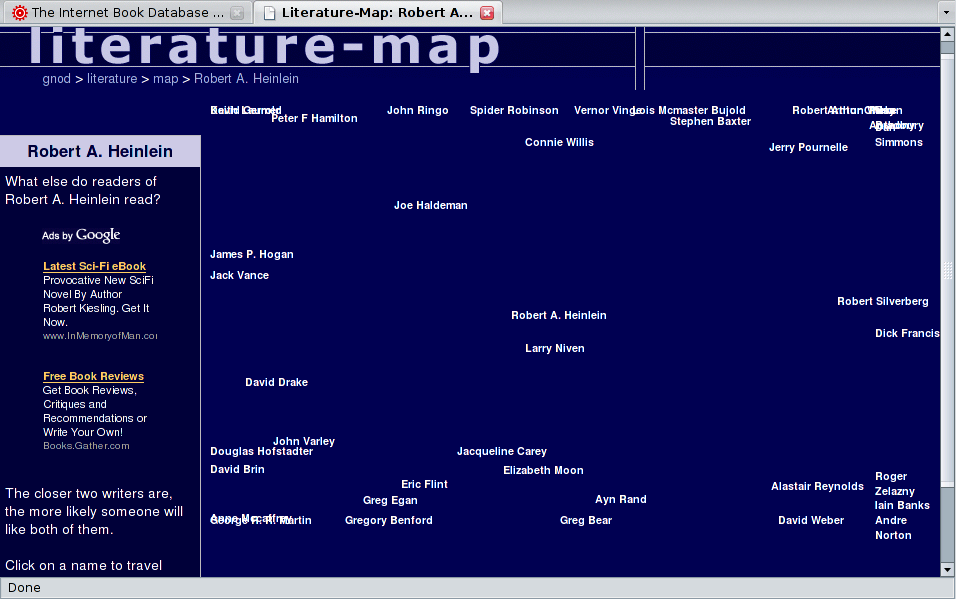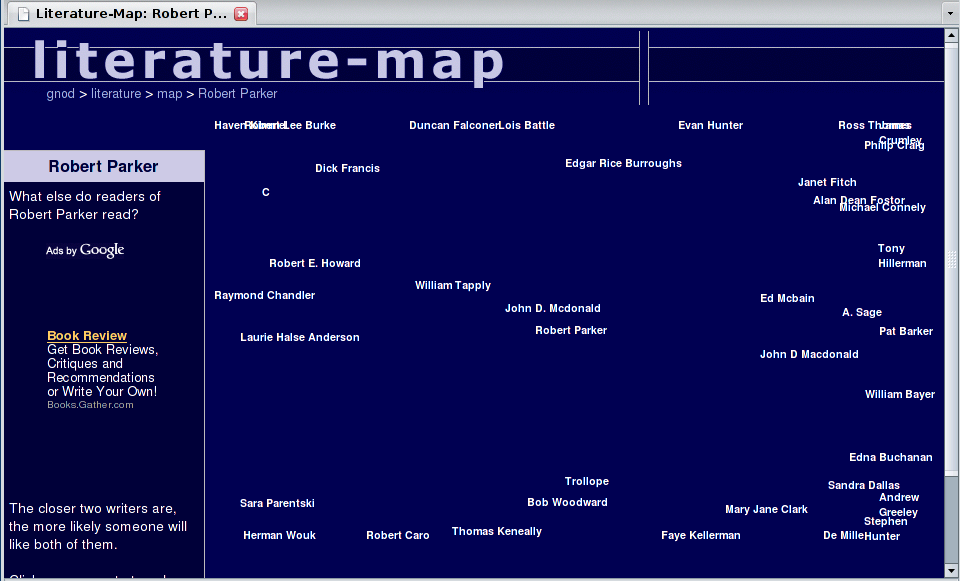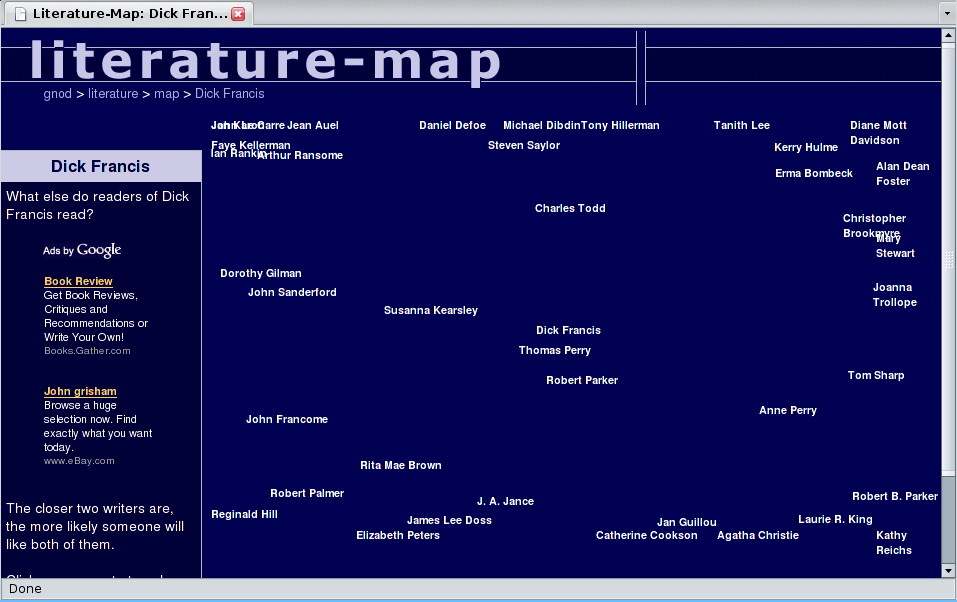
I like to read. I have many "favorite" authors. Reading their work keeps me busy, but I try to keep open to authors I have not tried yet. Sometimes I get recommendations from family and friends, but I have begun to use the Internet for more recommendations. The literature map site is a new way for me to find authors I can expect to like.
Here is the result of typing Robert Heinlein into the site.

Larry Niven is the closest name to Heinlein, and I would agree. I really like Niven's work.
Below that are listed in distance order: Jacqueline Carey, Elizabeth Moon, Ayn Rand and Greg Bear.
I have read and very much enjoyed Elizabeth Moon.
I Guess I should try Jacqueline Carey. Off to the library.
Everything I have heard from other people says I won't enjoy Ayn Rand. Should I try anyway?
The lower left corner includes John Varley whose work I enjoy.
I have not read Douglas Hofstaeter, but just beyond his name is David Brin whose work I really like, too. Off to the library again, I guess to try Hofstaeter.
The page is confusing at the very corner. At least a couple of names overlap. I can see who they are by clicking a name that is easy to read near the corner. I'll get a new map around that name.
I think I should comment that the right side of the page includes Dick Francis. He writes detective fiction. I am not sure how he appears on the Heinlein page.

We instantly agreed that the closest name, John D.
MacDonald, was a hit. My wife loved all of MacDonald's
Travis McGee series, and
many years ago, we went to The New England Mobile Book Fair, a
wonderful book warehouse store, and bought copies of all the
paperbacks they had by Macdonald. But, look a little to the right and
down. There is John D Macdonald (without the period on the middle
initial). Does the missing initial diminish his proximity to Robert
Parker? What kind of glitch is this? The artificial intelligence
engine behind this site isn't truly intelligent, of course. The system
depends on the way visitors enter their favorite author's names. Some
people have entered John D. Macdonald. Others entered John D Macdonald.
The engine doesn't recognize them as the same author.
Because Dick Francis happened to appear on both the Heinlein and Parker pages, I clicked Dick Francis go get his map.

Notice that Robert Parker is much closer to Francis, here, and Thomas Perry is between them. I really like Perry, but my wife, a fan of both Parker and Francis didn't care for the Thomas Perry book she read, Vanishing Act. That is the only Thomas Perry book she has read, because she was put off by Vanishing Act.
I have read most of Perry's books and would recommend them, though.
The Literature-map site derives its author linkages through a link on the related site, gnooks!
http://www.gnooks.com/trip.php
At that site, you enter the names of three authors you like. You get a recommendation back for a fourth author.
I entered Elizabeth Moon, Larry Niven and Larry McMurtry.
The gnooks site recommended Lois McMaster Bujold. I approve of the recommendation. I am a big fan of LMB's writing.
Each person who enters three author names adds “weight” to their relationship. The more often the any of the same names get entered together, the closer they appear on the map. If you are a mainly a fan of one genre, you will probably enter three authors from that genre, (presumably as your reading peers also would) and the proximity map will mainly show authors of that genre. Heinlein's map mainly has science fiction authors. Getting crossover between genres depends on having more users enter author names in groups of three that break out of a single genre.
Gnooks!, Literature-map and the underlying gnod engine are the work of German developer, Marek Gibney.
More information (in German) is on his main site: http://www.gibney.de/gnod/
Gnod is apparently an English acronym for “Global Network of Dreams”.
The more people who use gnooks for a recommendation, the more effective the literature map site will become.
The site also offers similar recommendations for music and movies using the same engine in a different data realm. There is also a people linking tool that Gibney calls “Flork” where you can “meet new people webwide”.
Give this site a try, but however you choose books, happy reading!